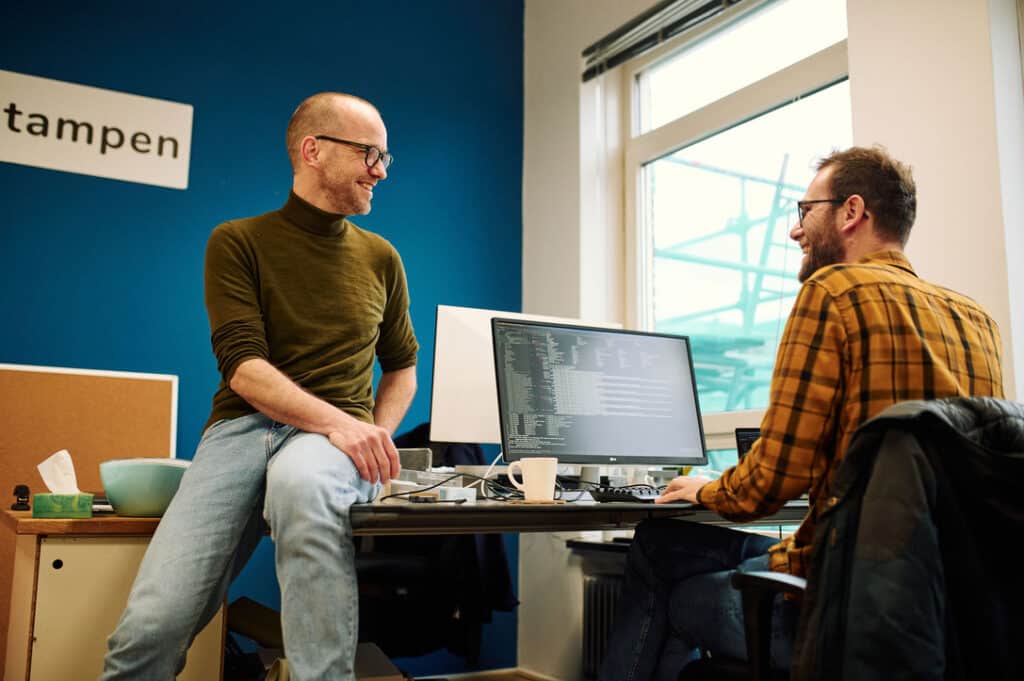Groningen, 10-12-2024
What if we could pinpoint the exact moment you’re about to forget something—and reinforce it to make it stick? What if learning wasn’t just accurate, but efficient, personalized, and transformative? This is no longer a vision of the future. Combining decades of cognitive research with cutting-edge computational models, MemoryLab’s solution improves learning outcomes by 10 to 20%, helping students achieve better results with less effort. We sat down with prof. dr. Hedderik van Rijn, founder of MemoryLab and professor in Cognitive Science and Neuroscience at the University of Groningen.
The Start
The foundation of MemoryLab lies in research on computational models of human memory. Prof. dr. van Rijn is specialized in human cognitive processing, and has long been fascinated by how people perceive time and how our memory functions. His work involves creating computational cognitive models— computer programs that emulate the workings of the human brain.
Around 2007–2008, the idea took shape when Van Rijn, together with a master’s student explored how such models could describe the mechanisms of memory. Through understanding of how memory operates, we can predict which pieces of information are at risk of being forgotten. By identifying these vulnerable items, it becomes possible to reintroduce them at the optimal time for reinforcement. This approach leverages a computational model to calculate the perfect moment to revisit a fact—neither too soon, which wastes time, nor too late, which requires relearning. Unlike conventional learning systems that only measure accuracy (e.g., whether an answer was correct), the method incorporates response time to gain deeper insights. If someone hesitates before giving the right answer, it signals a certain need for reinforcement. The science-based solution is proven to enhance learning by 10 to 20%.
In 2008, the team began formalizing the system and testing its integration into real-world learning platforms. The project gained traction when a publisher expressed interest in implementing the system in their online learning tools. This partnership laid the groundwork for further development and the eventual decision to spin off the research into a standalone company. The startup harnesses its computational cognitive models to create adaptive learning tools, aiming to improve education by delivering personalized, data-driven learning experiences.

prof. dr. Hedderik van Rijn
Collaborations
MemoryLab has grown significantly since its foundation. What once was just prof. dr. Van Rijn together with a part-time developer has evolved into a team of approximately 10 FTE. The team is of a multidisciplinary nature, including scientists, programmers, and commercial experts. According to prof. dr. Van Rijn, one of the startups key competencies is bridging the gap between scientific knowledge and impactful application: “Whereas research within the university focuses more on fundamental thinking about human cognition, we can do so on a more societal level within the startup. That is extremely valuable.”
The company remains deeply rooted in its mission to enhance learning outcomes, not just by developing innovative tools but by actively engaging with schools, universities, and businesses to optimize the application of its solution. Partnerships with institutions like the public schools in Groningen, the Montessori schools in Amsterdam and organizations like ETS in the US reflect a commitment to improving education locally and on a global scale. The company’s learning platform is already being used in universities and health applications, specifically in the newly founded MemoryLab Health company, which maps memory processes to detect cognitive impairments as observed in dementia, concussions, and other medical conditions. This synergy between academia and industry underscores its dual focus on creating impact through both research and real-world solutions.
The Future
What lies ahead for MemoryLab? Prof. dr. Van Rijn: “We would love to see that every child has access to the best possible learning tools, regardless of socioeconomic background.” This involves large-scale collaborations with educational publishers, school networks, and community organizations. Whilst maintaining financial sustainability, the company envisions expanding its reach, continuously optimizing its tools in harmony with scientific advancements.
With many more possible applications next to the optimization of education, the data-driven solution is yet to unlock its full potential. MemoryLab is here to create impact, and we’re all for it.
Eager to see how MemoryLab can help you optimize the way you learn? Find out more about MemoryLab on their website.
